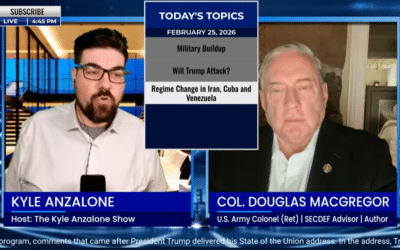Like many thousands of other Americans, James and Lisa Leonard were victimized in an act of highway robbery perpetrated by police.
An April 1, 2013 pretext traffic stop in Texas led to the discovery of a safe in the Leonards’ vehicle containing more than $200,000 and a bill of sale for a house in Pennsylvania. No evidence of a criminal offense was found – but through the practice called civil asset forfeiture, none was necessary: The police simply stole the money and filed a civil action to “forfeit” it in a forum in which the victim bears the burden of proving that the money was not proceeds of criminal activity.
Predictably, the court ruled in favor of the privileged thieves who had stolen it.
The Leonards appealed this ruling to the US Supreme Court, which declined to hear the case, thereby passively ratifying the robbery. Although the Court is not required to explain or comment on a decision not to hear a case, Justice Clarence Thomas published an explanatory note describing the history of asset forfeiture, and criticizing the court system’s role in the process.
What Thomas wrote is hardly a revelation to those who have followed this subject, but this is the first time an official of his standing has conceded the obvious: Police across the nation routinely commit undisguised highway robbery.
Civil asset forfeiture, through which property can be seized without its owner facing criminal charges, has “become widespread and highly profitable” in recent decades, in no small measure “because the law enforcement entity responsible for seizing the property often keeps it, [and thus] have strong incentives to pursue forfeiture,” Thomas acknowledged. “This system – where police can seize property with limited judicial oversight and retain it for their own use – has led to egregious and well-chronicled abuse.
Forfeiture operations “frequently target the poor and other groups least able to defend their interests in forfeiture proceedings,” he continued, urging the federal court system to reevaluate its reasoning in approving a practice that amounts to a wholesale denial of due process protections.
Tragically, albeit predictably, Thomas’s indignation over what was done to the Leonards, and countless others in similar circumstances, did not motivate him to lobby three other justices to grant certiorari so that the victims could obtain redress.





























